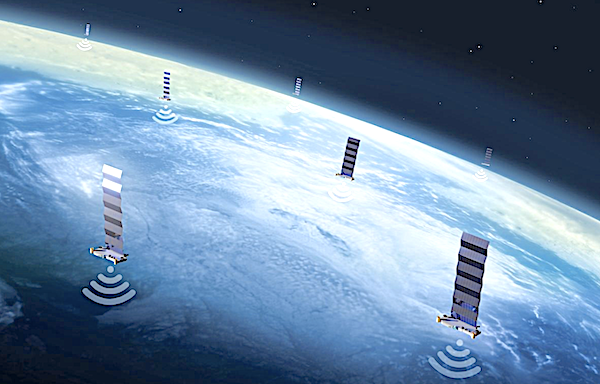
Starlink vs AST SpaceMobile: Tortoise or Hare? (Image Credit: Sat News)

SpaceX’s Starlink has managed to launch 349 of its Direct-To-Cellular (D2C) satellites in less than a year. While this is an admirable achievement the fleet is currently only able to manage simple Text/SMS messages to users in remote areas. The 349 launched craft represent some 90 per cent of the target constellation. The first Starlink D2C satellites were launched on January 2 2024.
However, observers are arguing that this impressive SpaceX beginning might count for very little when rival AST SpaceMobile gets its build and launch momentum up and running. Currently, AST has just five of its BlueBird Block 1 satellites in orbit. Another Starlink rival, Lynk, has just eight satellites in orbit, while the GlobalStar/Apple emergency text services are tapping into only 24 satellites.
In other words, this could be a true ‘the tortoise and the hare’ scenario, with Starlink ‘winning’ this first lap of the race but being rapidly overtaken by AST (and perhaps in time by Lynk and GlobalStar). Others have compared the race to that of VHS vs BetaMax. Eventually VHS caught up with and exceeded Betamax despite most critics suggesting that BetaMax was the better technology, and especially for recording times where Betamax was simply not enough at one hour.
AST will need around 200 of its larger Block 2 BlueBirds to circle the planet and deliver a comprehensive 5G service which will be ‘full’ broadband including voice. Starlink is promising voice and data next year but the challenge for its next-generation satellites is to get around 20,000 of them into orbit. This will take time.
AST is claiming that its connections will work under trees, and even within buildings. Starlink depends on true ‘line of sight’ for any sort of connection.

It is also worth remembering that each AST satellite has around 100-times the bandwidth/capacity of a Starlink D2C craft. Nevertheless, Starlink has deals in place with seven cellular operators, while AST has links in place with more than 40 including giants such as Verizon and Vodafone.
Advanced Television





